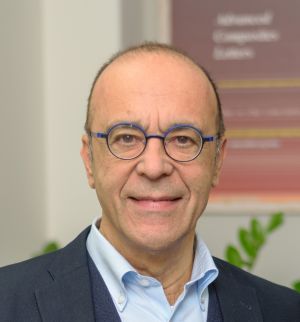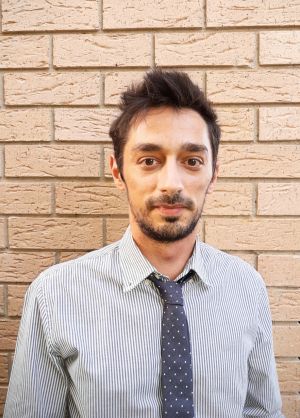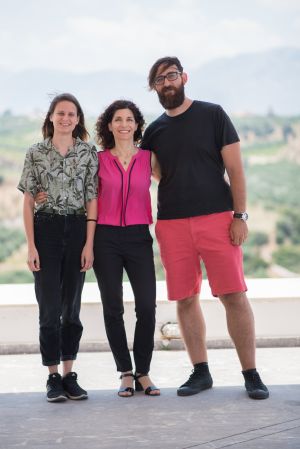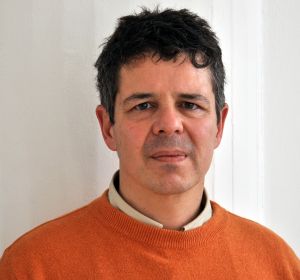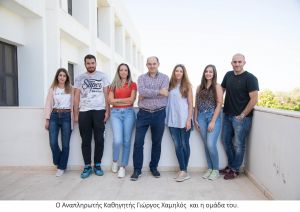All Science News
Highly Prestigious International HFSP Grant Awarded to IMBB-LAB
Prof. Electra Gizeli from IMBB-Biosensors lab (http://biosensorslab- forth.gr) is recipient and will coordinate a new Human Frontier and Science Program (HFSP) grant entitled “Self-organization and biomechanical properties of the endosomal membrane”.
Development of superlubricity in graphene materials.
Researchers of FORTH / ICE-HT in Patras headed by Prof. Costas Galiotis of Chemical Engineering Dept. of University of Patras published in the high-impact scientific journal Nature Communications a scientific report for the superlubric behaviour (approximately zero friction) between two randomly packed graphene monolayers.
Professor and Collaborating Faculty Member of FORTH/ICE-HT Costas Galiotis was awarded by the Academy of Athens
The Award of Excellence in Natural Sciences of the Academy of Athens for the year 2020 was given to Dr. Costas Galiotis, Professor, Department of Chemical Engineering, University of Patras and Collaborating Faculty Member of the Institute of Chemical Engineering Sciences of the Foundation for Research and Technology, Hellas (FORTH/ICE-HT).
European Astronomical Society 's MERAC Prize to Aris Tritsis for Best PhD Thesis in Theoretical Astrophysics conducted at the University of Crete and FORTH
The European Astronomical Society has announced the award of the 2020 MERAC Prize for Best PhD Thesis in Theoretical Astrophysics to Dr. Aris Tritsis (https://eas.unige.ch/merac_prizes.jsp). The award represents the highest distinction of the European Astronomical Community for doctoral studies.
Researchers provide new insights into the pathogenesis of epilepsy
The laboratories of Drs. Peyman Golshani (golshanilab.neurology.ucla.edu/) at the University of California in Los Angeles, Tristan Shuman (http://labs.neuroscience.mssm.edu/project/shuman-lab/ ) at Mount Sinai Hospital in New York, and Panayiota Poirazi (dendrites.gr) at the Institute of Molecular Biology & Biotechnology (IMBB) at the Foundation for Research and Technology Hellas (FORTH), joined forces in order to uncover how epilepsy affects spatial navigation in epileptic mice
Ambient air THz source shines bright
A major frontier in strong field laser physics and nonlinear optics is the interaction of powerful terahertz (THz) pulses with matter. A plethora of scientific challenges and applications are presently under study, like table-top electron acceleration, THz-enhanced attosecond pulse generation and strong electric and magnetic THz field interactions with matter.
FORTH-IESL Researchers explain how disorder in tiny crystals enables heat-therapeutic systems
A new research study at the Institute of Electronic Structure and Laser (IESL) of FORTH finds that minute crystals, many thousand times smaller than a particle of dust, when they are dressed by the right kind of imperfections, adjust their electronic properties to favorably convert energy into heat, an important attribute for potential use in smart materials for energy, health, sensors etc.
New scientific discovery by researchers at FORTH DNA damage triggers metabolic reprogramming, leading to aging
Inborn defects in DNA repair mechanisms are associated with cancer, aging but also complex metabolic and endocrine disorders. Integrity of the genome is critical for normal cellular function but the DNA is continually challenged by intrinsic and extrinsic genotoxic factors. To counteract DNA damage, cells have evolved DNA repair mechanisms ensuring that the genome remains functionally intact and is faithfully transmitted to progeny. Nucleotide excision repair (NER) is a major DNA repair mechanism that cells employ to remove a wide class of bulky, DNA-distorting lesions from the genome. The importance of NER defects in man is illustrated by rare syndromes that either show increased cancer predisposition or dramatic features of accelerated aging, including depletion of fat depots. However, with the exception of cancer and aging, the links between defects in NER and the rapid onset of developmental defects in humans are not well understood.
The Achilles’ heel of malaria vectors: novel insecticide resistance mechanisms expressed in their legs
Malaria has halved since 2000 (approximately 500,000 lives saved every year), with 80% of the reduction attributable to the use of insecticides. However, insecticide resistance is at a critical tipping point in public health, with some mosquito populations showing resistance to all insecticides and the strength and impact of this resistance is escalating every year. As a result, for the first time after many years, malaria cases were increased in several places after 2015, despite the far more intense use of insecticides.
Prestigious ERC Consolidator Grant awarded to FORTH Researcher Dr. Giorgos Chamilos
Giorgos Chamilos, Researcher at the Institute of Molecular Biology and Biotechnology of the Foundation for Research and Technology – Hellas (FORTH) and Associate Professor at School of Medicine, University of Crete, is awarded a Consolidator Grant from the European Research Council (ERC).
Page:1 .... 789101112131415 .... 23 | < Prev Next >



